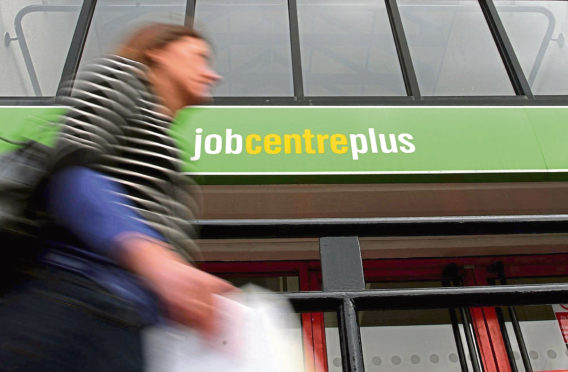Employment in Scotland has dropped further than any other part of the UK, official statistics indicate.
New figures from the Office for National Statistics (ONS) shows the number of people in employment in Scotland this year fell by 1.4% in the three months to August, compared to the previous quarter.
The publication suggests 2.63 million people across Scotland were in employment between June and August, a drop of 39,000 from the three months before.
The drop was the highest of any region in Britain, just ahead of Wales, which saw a 1.1% reduction.
Some areas, such as the south-east of England and Yorkshire, saw their jobs figures increase.
During the same period, the rise in unemployment in Scotland also outpaced other areas of the UK, going up by 0.8%.
The statistics suggest 112,000 people were unemployed during the period, 20,000 more than between March and May.
The shift in job numbers now sees Scotland fall well below the UK average, with 74.3% in work, compared to 75.9% across the rest of the country.
Business minister Jamie Hepburn claims uncertainty over the UK’s exit from the European Union is the main driver behind the drop in employment.
He said: “Brexit is having an increasingly negative impact on Scotland’s economy and labour market, and that is demonstrated by these figures.
“There are some things the Scottish Government cannot mitigate. But within the limit of our powers we are working as hard as possible to prevent damage to Scotland’s jobs, businesses and economy being inflicted by a UK Government-led Brexit.
“We will continue working to create the right economic conditions for employment, such as our ‘Prepare for Brexit’ campaign – helping build economic resilience through grants which support businesses to have response plans in place.”
Employment dropped by 0.2% across the country, while the number of those not in work went up by 0.1%.
The drop in the number of people in work is the sharpest dip since 2015.
Dr Stuart McIntyre, of the Fraser of Allander Institute, said: “While it’s important not to get too carried away with one set of numbers, the fact that unemployment has been rising in Scotland, and employment falling, over the past year while the reverse has been happening in the UK as a whole, is a cause for concern.
“While the economic headwinds caused by Brexit are real, this does not fully explain these data, with Scotland now having higher unemployment, lower employment and higher economic inactivity than the UK as a whole.”
